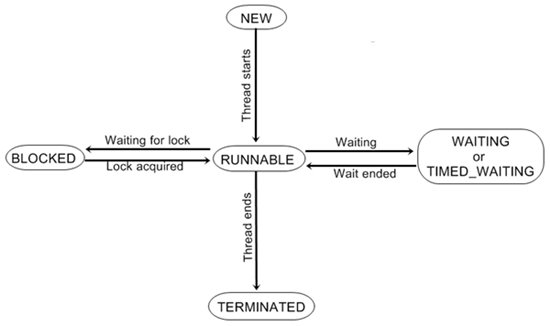- Java Programming Basics
- Java Tutorial
- Java Overview
- Java Environment Setup
- Java Program Structure
- Java Basic Syntax
- Java First Program
- Java Constants
- Java Separators
- Java Keywords
- Java Data Types
- Java Data Types
- Java Integers
- Java Floating Point
- Java Characters
- Java Booleans
- Java Numbers
- Java Programming Variables
- Java Variables
- Java Variable Types
- Java Variable Scope
- Java Type Conversion
- Java Type Casting
- Java Auto Type Promotion
- Java Type Promotion Rules
- Java Programming Arrays
- Java Arrays
- Java One Dimensional Array
- Java Multidimensional Array
- Java Programming Operators
- Java Operators
- Java Arithmetic Operators
- Java Increment Decrement
- Java Bitwise Operators
- Java Left Shift
- Java Right Shift
- Java Relational Operators
- Java Boolean Logical Operators
- Java Ternary(?) Operator
- Java Operator Precedence
- Java Control Statements
- Java Decision Making
- Java if if-else if-else-if
- Java switch Statement
- Java Loops
- Java while Loop
- Java do-while Loop
- Java for Loop
- Java for-each Loop
- Java Nested Loops
- Java break Statement
- Java continue Statement
- Java Class Object Method
- Java Classes and Objects
- Java Class
- Java Object
- Java new Operator
- Java Methods
- Java Constructors
- Java this Keyword
- Java Stack
- Java Overloading Recursion
- Java Method Overloading
- Java Constructor Overloading
- Java Object as Parameter
- Java Call by Value Reference
- Java Returning Objects
- Java Recursion
- Java Modifier Types
- Java Encapsulate Poly String
- Java Encapsulation
- Java Polymorphism
- Java Nested Inner Class
- Java Strings
- Java Command Line Arguments
- Java Variable Length Arguments
- Java Inheritance Abstraction
- Java Inheritance
- Java super Superclass
- Java Multilevel Hierarchy
- Java Method Overriding
- Java Abstraction
- Java Packages Interfaces
- Java Packages
- Java Access Protection
- Java Import Statement
- Java Interfaces
- Java Programming Exceptions
- Java Exception Handling
- Java try catch
- Java throw throws
- Java finally Block
- Java Built In Exceptions
- Java Exception Subclasses
- Java Chained Exceptions
- Java Multithreading
- Java Multithreading
- Java Thread Model
- Java Main Thread
- Java Create Thread
- Java Thread Priorities
- Java Synchronization
- Java Inter Thread Communication
- Java Suspend Resume Stop Thread
- Java Get Thread State
- Java Enum Autobox Annotation
- Java Enumerations
- Java Type Wrappers
- Java Autoboxing
- Java Annotation
- Java Marker Annotations
- Java Single Member Annotation
- Java Built In Annotations
- Java Type Annotations
- Java Repeating Annotations
- Java Data File Handling
- Java Files I/O
- Java Streams
- Java Read Console Input
- Java Write Console Output
- Java PrintWriter Class
- Java Read Write Files
- Java Automatically Close File
- Java Programming Advance
- Java Date and Time
- Java Regular Expressions
- Java Collections Framework
- Java Generics
- Java Data Structures
- Java Network Programming
- Java Serialization
- Java Send Email
- Java Applet Basics
- Java Documentation
- Java Programming Examples
- Java Programming Examples
Java Get Thread State
A thread can exist in number of different states. You can get the current state of a thread by calling the getState() method defined by Thread. Here is the way to get the state of a thread:
Thread.State getState()
It returns a value of the type Thread.State which indicates the state of the thread at the time at which the call was made. State is an enumeration defined by the Thread. (An enumerations is nothing, it is a list of named constants. You will learn about enumerations in next chapter).
Here this table lists the values that can be returned by the method getState() :
| Value | State |
|---|---|
| BLOCKED | A thread that has suspended execution because it is waiting to gain a lock |
| NEW | A thread that has no begun execution |
| RUNNABLE | A thread that either is currently executing or will execute when it gains access to CPU |
| TERMINATED | A thread that has completed execution |
| TIMED_WAITING | A thread that has suspended execution for specified period of time. Such as when it has called sleep(). This state also entered when a timeout version of wait() or join() is called |
| WAITING | A thread that has suspended execution because it is waiting for some action to occur. For instance, it is waiting because of a call to a non-timeout version of wait() or join() |
Java Thread States
Following figure shows how the various thread states relates :

Given a Thread instance, you can use getState() method to get the state of a thread. For instance, the below sequence determines if a thread called thrd is in the RUNNABLE state at the time the getState() is called :
Thread.State ts = thrd.getState(); if(ts == Thread.State.RUNNABLE) // ...
It is important to understand that a thread's state may change after the call to the getState(). Therefore, depending on the circumstances, the state got by calling the method getState() may not reflect the actual state of the thread only a moment later. For this reason and other reasons, the method getState() is not intended to provide a means of synchronizing threads. It is primarily uses is for debugging/profiling a thread's run-time characteristics.
« Previous Tutorial Next Tutorial »